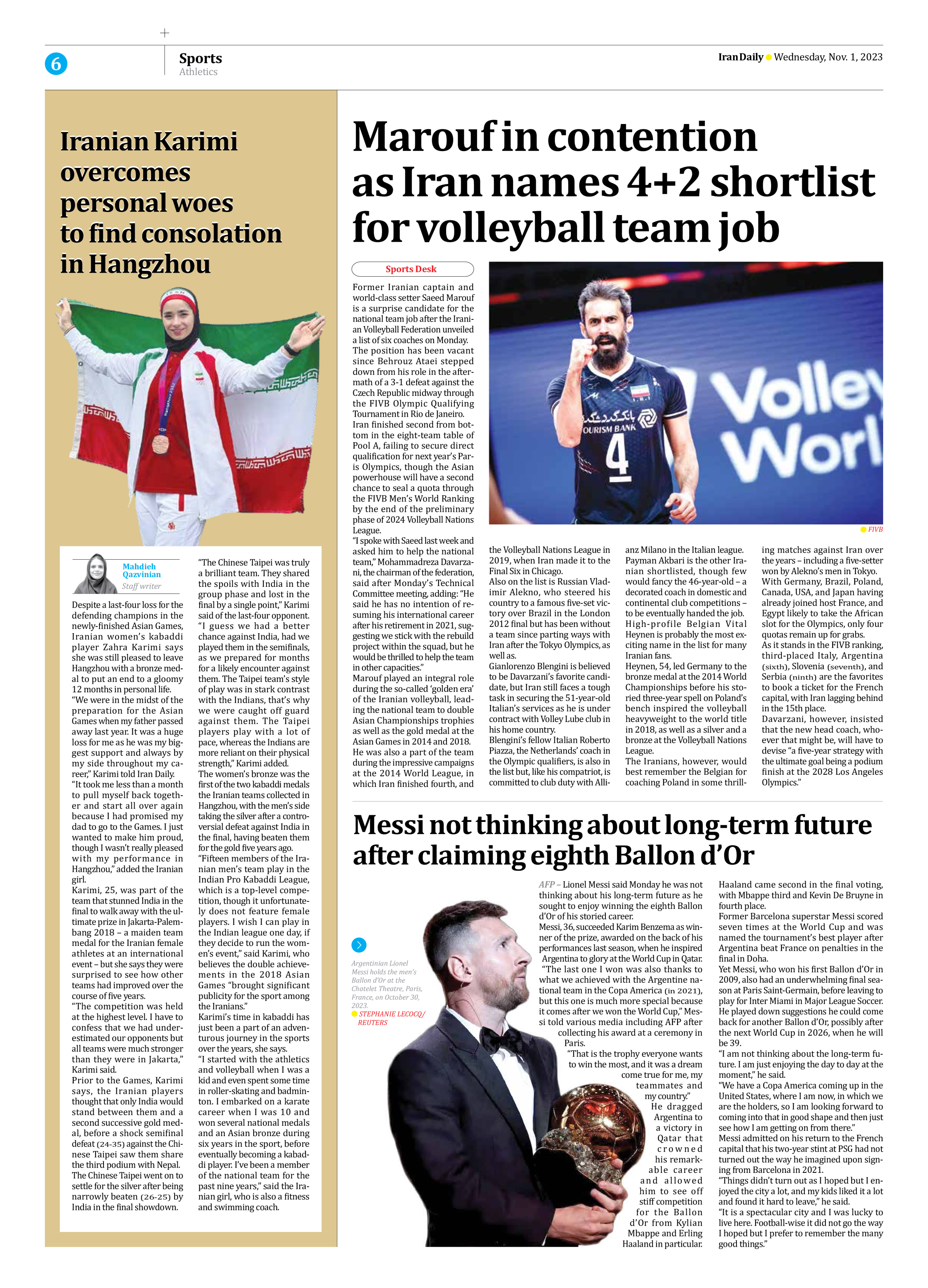
Iranian Karimi overcomes personal woes to find consolation in Hangzhou
Mahdieh Qazvinian
Staff writer
Despite a last-four loss for the defending champions in the newly-finished Asian Games, Iranian women’s kabaddi player Zahra Karimi says she was still pleased to leave Hangzhou with a bronze medal to put an end to a gloomy 12 months in personal life.
“We were in the midst of the preparation for the Asian Games when my father passed away last year. It was a huge loss for me as he was my biggest support and always by my side throughout my career,” Karimi told Iran Daily.
“It took me less than a month to pull myself back together and start all over again because I had promised my dad to go to the Games. I just wanted to make him proud, though I wasn’t really pleased with my performance in Hangzhou,” added the Iranian girl.
Karimi, 25, was part of the team that stunned India in the final to walk away with the ultimate prize in Jakarta-Palembang 2018 – a maiden team medal for the Iranian female athletes at an international event – but she says they were surprised to see how other teams had improved over the course of five years.
“The competition was held at the highest level. I have to confess that we had underestimated our opponents but all teams were much stronger than they were in Jakarta,” Karimi said.
Prior to the Games, Karimi says, the Iranian players thought that only India would stand between them and a second successive gold medal, before a shock semifinal defeat (24-35) against the Chinese Taipei saw them share the third podium with Nepal.
The Chinese Taipei went on to settle for the silver after being narrowly beaten (26-25) by India in the final showdown.
“The Chinese Taipei was truly a brilliant team. They shared the spoils with India in the group phase and lost in the final by a single point,” Karimi said of the last-four opponent.
“I guess we had a better chance against India, had we played them in the semifinals, as we prepared for months for a likely encounter against them. The Taipei team’s style of play was in stark contrast with the Indians, that’s why we were caught off guard against them. The Taipei players play with a lot of pace, whereas the Indians are more reliant on their physical strength,” Karimi added.
The women’s bronze was the first of the two kabaddi medals the Iranian teams collected in Hangzhou, with the men’s side taking the silver after a controversial defeat against India in the final, having beaten them for the gold five years ago.
“Fifteen members of the Iranian men’s team play in the Indian Pro Kabaddi League, which is a top-level competition, though it unfortunately does not feature female players. I wish I can play in the Indian league one day, if they decide to run the women’s event,” said Karimi, who believes the double achievements in the 2018 Asian Games “brought significant publicity for the sport among the Iranians.”
Karimi’s time in kabaddi has just been a part of an adventurous journey in the sports over the years, she says.
“I started with the athletics and volleyball when I was a kid and even spent some time in roller-skating and badminton. I embarked on a karate career when I was 10 and won several national medals and an Asian bronze during six years in the sport, before eventually becoming a kabaddi player. I’ve been a member of the national team for the past nine years,” said the Iranian girl, who is also a fitness and swimming coach.







